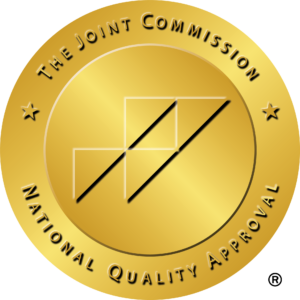…from the desk of Tod Lipka, Step Up President & CEO
Each year in Los Angeles, the Los Angeles Homelessness Services Authority (LAHSA) conducts a “Point in Time Count,” which is mandated by The U.S. Department of Housing and Urban Development (HUD). On three nights in January, droves of volunteers head out across the county to count how many individuals and families are living in places not meant to be lived in by human beings. This includes a count of people living in transitional and emergency shelters, encampments, automobiles, on sidewalks and in parks and alleys.
As citizens, we don’t need a count to tell us what we already know because we witness the human suffering in our neighborhoods every day: homelessness is out of control in our cities, especially in Los Angeles. By now, you have heard or read the numbers. Los Angeles County’s unnatural disaster of homelessness has grown beyond unacceptable levels. In its 2019 report released Tuesday, LAHSA reported that homelessness increased by 12% in Los Angeles County and 16% in Los Angeles City. On any given night, 58,936 individuals and families are experiencing homelessness, and 44,214 are living unsheltered. There were notable increases in the number of youth between the ages of 18-24 living without permanent homes (+24% over last year!), seniors (+7%), individuals with serious mental illness (25% of the overall homeless population, +7% over last year).
While there has been an unprecedented infusion of funding to try to tackle the issue, the fact is that the issue of homelessness will not be resolved any time soon. Underlying this homeless crisis is an affordable housing crisis in Los Angeles. And perhaps we will not make significant gains in homelessness until all housing becomes more affordable.
Nevertheless, the existing system that produces housing for homeless individuals is a decades-old model that is, at best, an antiquated ill-fitting response to our current crisis in homelessness that is on the precipice of catastrophe. Developing a housing project that takes five years and costs $500K per unit is not the tool that will yield significant gains on resolving homelessness.
Here’s the good news:
- 21,631 people experiencing homelessness were housed in 2018. Housing placements have increased 23% from last year and more than double since 2014.
- 6,424 units of supportive housing are approved for funding and are in the development pipeline across LA County.
- 5,643 people were provided assistance to prevent homelessness, triple the number as before Measure H.

Step Up is at the forefront of the positive gains going on. We have 11 projects that have started or will start construction in 2019 alone, totaling over 600 units. To put that in perspective, over our first 30 years, we developed 9 projects totaling about 300 units. This year alone, we will build the same number of projects it took us 30 years to develop and we will triple the number of units in Step Up’s portfolio.
As impressive as this is, it is still not enough. The current housing production system is broken and we have to innovate ways to scale housing. The solution lies in pathways to scaling housing production that gets units online faster and cheaper. This requires a Copernican change, not an incremental change, in how we develop housing. Gains like Prop HHH and Measure H are fantastic and no other community in the country has accomplished such measures, but we have to recognize it is simply not enough. Even with this funding and the housing units, we are still falling behind and experiencing continued increases in homelessness.
Here at Step Up, we are focused on scaling initiatives as this is the only long-term viable solution. Our strategies to get to this scaling are:
- We are pursuing private/public partnership models that would allow us to create a significant number of units through motel conversions. We are working with some major investors using the motel conversion model. Motels convert more quickly and less expensively (half the cost of apartment buildings) into permanent housing.
- We have partnered with a modular housing manufacturer who wants to bring a factory into Los Angeles County to rapidly produce modular panels with green technology that will enable the creation of housing units for 1,000 individuals experiencing homelessness every year for the foreseeable future.
- We are working with partners adept at manufactured homes (aka trailer or mobile homes) that, because the state certifies them, can be constructed faster and less expensively than other housing.
Here’s how you can tackle this issue:
- Find Your Elected Officials Now. Get educated on the issues. Read the report. Advocate for affordable housing in your neighborhood. Contact City, County, State, and National leaders to address the issues by investing in real solutions.
- Invest Now in Step Up’s solutions either one-time or for the long haul.
- Volunteer Now your time and talents.
Whatever you chose to do, know that this crisis cannot be resolved without your support whether that support is brain power, brawn or financial investments. Human beings with real-life experiences are suffering. These are our neighbors, our sons, and daughters, our parents, our friends, our co-workers. We don’t know what the reason is for their current situation. More than likely, there are 58,936 reasons why.







